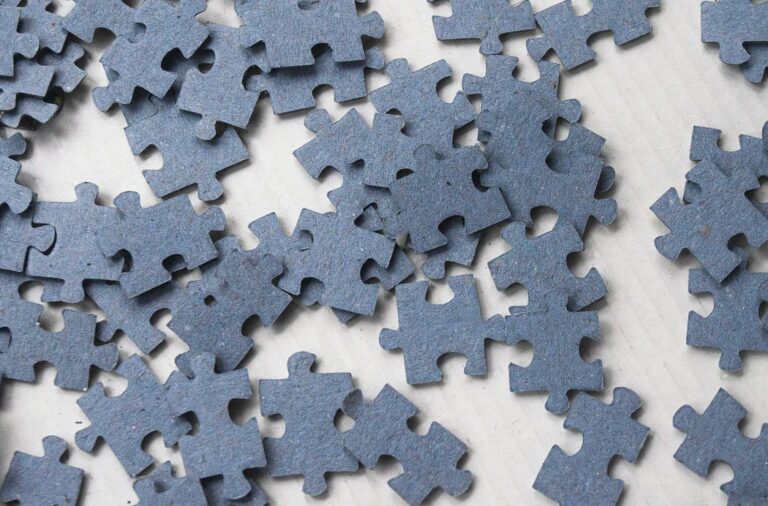Book Appointment Now
5 Astonishing Reasons Why Forgiving Yourself After Leaving an Abusive Relationship is Hard

Forgiving yourself is a step forward in your recovery from toxic, abusive or narcissistic relationship.
Table of Contents
Maya Angelou- ‘Forgive yourself for not knowing what you didn’t know before you learned it.’
Recovery from a toxic, abusive or narcissistic relationship is not an easy feat as there are many factors at play.
A relationship of that nature leaves us sad and depressed, feeling worthless, directionless and at times even suicidal. We then develop feelings of anger, resentment towards ourselves mainly because we blame ourselves for what went through. We tend to perceive that not forgiving ourselves gives us a sense of security and protection from future harm.
Self-forgiveness basically involves forgiving yourself for what happened. Lack of self-forgiveness is a common norm as it arises when we feel that we’ve not taken care of ourselves in a manner we ought to have done.
Most times we do beat ourselves when we’ve been ‘outsmarted’ by our toxic partners and yet it was not our fault. We expend so much energy by just questioning ourselves and having repeated negative self-talk with thoughts like: –
- Why did I stay too long?
- I am smarter than that
- I should have known better or I am better than this
- Why do I always do this?
- Why didn’t I see it coming?
- Why did this happen to me?
- I will never forgive myself for this
Learning to forgive yourself is an art which needs cultivation over time. Recovery can be a challenging journey as through constant manipulation we’ve lost touch with our authentic selves.
Self-forgiveness is not as easy task to an extent that some people may forgive their Ex-partners but not themselves.
We can forgive others but not ourselves because of the negative bias we have adopted from our upbringing which affirm that we need not celebrate our achievements as it’s a show of selfishness and impoliteness.
Why Is It Hard to Forgive Ourselves?
Self-forgiveness in not an easy feat to accomplish as it involves admitting and accepting that which happened to us as well as knowing that we might need to change. There are a number of reasons why we find to forgive ourselves and once we become aware of that, we will be ready to move on.
- Feeling of Self-guilt- When we look back and reflect on what we’ve gone through in our past relationships, most people feel that the fact they allowed themselves to stay too long is enough for them not to be worthy of forgiveness. We feel like we’re a mistake and we often tell ourselves things like “If I could fall for that, I am not worthy of forgiveness or I am stupid for falling for that.” This negative self-talk we do on ourselves is a huge deterrent when trying to forgive ourselves. It’s kinda like that inner voice which keeps us grounded leading to loss of self-belief.
- Self-shaming — Shame has to be distinguished from Guilt. Shame is kind of “I made a mistake”. According to healthline.com “shame relates to your sense of self, and it can cut deeper, so these feelings can linger long after you’ve apologized or made amends.” Long after we leave a toxic relationship, we feel that we did something wrong by falling for the wrong partner and falling for his/her lies. We feel embarrassed of the things we did and fell for in that relationship in such a way that thinking about self-forgiveness looks impossible. Having been raised with the mindset that “failure is bad” or “we need to be perfect” plays a huge role in self-shaming ourselves. Self-shaming leads to toxic shame which makes us feel awful about ourselves and making it difficult to open up to others for you to heal.
- Thinking Self-Forgiveness is Condoning the Act — Most of us think of self-forgiveness as accepting the ‘US’ which made mistake of the past. They also think of it like if we accept the ‘US’ it means we will do the mistake again. It gives us that feeling of if we do it we’re letting ourselves off the hook.
- Penance- Penance is the punishment we inflict on ourselves an outwards expression of repentance for wrongdoing. When we ruminate and constantly fault ourselves over what we went through in our past relationship, self-forgiveness is thrown out the window. It is a form of self-judgment to oneself.
- Lack of Self-Validation — We have been raised knowing that seeking approval and validation from others is a way of confirming if something is ‘good’ or ‘bad’ for us. It’s more like, what is accepted as the best by the crowd is the best. Because of this, we find it hard to forgive ourselves as we expect others to forgive us for it to be valid.
BENEFITS OF FORGIVING YOURSELF
Self-forgiveness is important to our physical health, mental health and our overall wellbeing. It can be viewed as unconsciously or consciously carrying invisible weight within us. A great analogy to explain its effect on us is the stress experiment involving a glass of water [YouTube].
In short, if you hold a glass of water on your palm, it will get heavier and painful as time progresses. This same effect holds when it comes to holding on to our past ‘mistakes’. The effects of self-forgiveness on us involve: –
- Improved Mental Health — When we forgive ourselves we lessen the needless burden we’re carrying with us. Self-forgiveness brings about peace of mind and helps us let go of the deep negative feelings that can prevent us from fully moving on in life. Self-forgiveness leads to reduced anxiety, released anger & resentment, increased ability to cope with stress and depression.
- Improved Relationship with Others and with Oneself– When we forgive ourselves, we deepen our relationships with other people as we can share our stories without feeling ashamed of them. This will then inspire them and in return forge strong emotional bonds. With self-forgiveness we also get to develop self-compassion and self-love.
- Leads to Self-empowerment — When we forgive ourselves, we own up and take responsibility for what’s within your control. This frees up energy which we can use to further heal as we recover from the toxic relationships.
- Improved Physical Health- According to betterhelp.com, when we forgive ourselves we reduce the risk of physical aspects of such as pain, high blood pressure, and increased cholesterol levels.
HOW TO PRACTICE SELF-FORGIVENESS
Now that we’ve known the effects, benefits and what holds us back from forgiving ourselves, we can now ask ourselves this; what do we have to do so that we can forgive ourselves?
There’s no magic pill when it comes to self-forgiveness after recovering from a toxic relationship as this all depends on the complexity of your past relationship and the conditioning we’ve been subjected to whilst growing up.
Some will forgive themselves faster and easily and some will find it hard to even think about it. Some of the recommended ways to practice self-forgiveness involve: —
- Recognize that you’re not perfect — We do make mistakes every now and then. To forgive yourself you’ve got to realize that we’re not perfect beings and what we can do instead is learn from our past. In a narcissistic relationship, self-forgiveness will entail being smarter in identifying all the red flags as we pursue future authentic relationships.
- Accept that you did not know any better- In a relationship of abusive or narcissistic nature, it normally starts with our partners grooming us and mirroring our deepest desires. They project their false- selves earlier on in the relationship to hook us and because of constant gaslighting in the relationship, we lose our sense of self-worth and self-trust making it hard for us to leave. Knowing it was not your fault, can give you the energy you need to focus on the present-self.
- Overcoming the negative self-talk- Our negative inner voice keeps reminding us that we’re not worthy of forgiveness or self-love. It’s that voice that tells us “we can’t seem to make things right”. To overcome negative self-talk all we have to do is become aware of our critic and then rewrite that script with positive and eye-opening statements like “I did what I knew best in that moment”
- Practice Self-Compassion and Kindness- Learn to be more loving and compassionate to yourself. Give yourself a break from constant rumination over your past and treat yourself which something you like. You can cook yourself a delicious meal, take a walk or just any form of self-care.
- Write a Reconciliation Letter to your Present Self — Self-forgiveness is declaring war on yourself. Reconciliation letter acknowledging that you were duped by your ex-partner and that it was not you fault as it felt real at that time. It is a very powerful technique which in the end you reaffirm to unconditionally loving yourself. [Click for sample]
- Make it Right — another way to practice self-forgiveness after coming out of a toxic relationship is to recommit to oneself that you will build your self-knowledge and never to be in another narcissistic relationship in future.
An abusive relationship has various overt and covert manipulation techniques which people undergo whilst still in the relationship.
A relationship of that nature makes someone feel drained and with little or no hope of ever leaving. After leaving that relationship, we find it hard to forgive ourselves because of the constant thinking of the tortures we put ourselves through. The first thing to accept is that staying too long was not your fault.
Lack of self-forgiveness has various negative effects on us like constant stress, anger and resentment.
Practicing self-forgiveness takes acceptance and awareness and the final outcome of this being improved mental health, physical health and general wellbeing.







